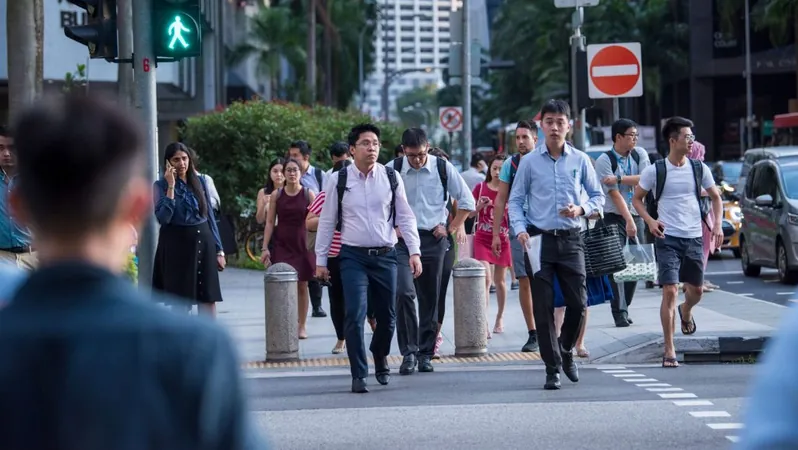
Controversial Public Sector Worker Sparks Online Uproar Over Layoff Comments in Singapore
2024-10-28
Author: Li
A Singaporean public sector employee has ignited a firestorm of criticism after proclaiming on the NTU Confessions Facebook page that he "eagerly anticipates more layoffs" if fellow citizens continue to pursue private sector jobs. His provocative statement has led to outrage among netizens who feel it lacks compassion for those facing job losses.
In his post, the employee advised his peers to “let go of the ego,” particularly amidst a wave of mass layoffs affecting various industries. He expressed concerns that many existing technical skills are at risk of becoming obsolete due to rapid advancements in artificial intelligence, leaving workers vulnerable as technology continues to evolve.
Having benefited from a Singaporean scholarship, he encouraged others to seek similar opportunities in the public sector. “I’m content and ready to contribute positively to Singapore,” he wrote, asserting that it’s essential to embrace a meritocratic society. However, he suggested that individuals with inflated self-views may struggle in the future job market.
Initially intended to advocate for careers in the public sector as a stable alternative, his comments were met with derision. Critics labeled his remarks as insensitive, especially to those who have already been impacted by recent layoffs.
Responses ranged from outright condemnation to pointed critiques of his apparent lack of empathy. One notable comment cautioned, “People like you should not be in the public sector,” emphasizing that a mindset focused on others' failures could hinder one’s success in management roles.
Another commenter highlighted the contradictory nature of his post, criticizing his desire for mass layoffs that would undermine Singapore’s economy at large. Observations continued as some reminded him that public sector roles are not immune to retrenchment, noting that job cuts occur quietly and without fanfare compared to the private sector.
Comments also emphasized that public service should be about serving the community rather than a safety blanket against job uncertainty. The backlash underscores a critical conversation unfolding in Singapore about job security, the impact of AI on employment, and the values that should guide future leadership in both public and private sectors.
As public discourse continues, it remains vital for Singaporeans to reflect on how they navigate their careers in rapidly changing landscapes and the importance of empathy in the face of growing economic challenges.



 Brasil (PT)
Brasil (PT)
 Canada (EN)
Canada (EN)
 Chile (ES)
Chile (ES)
 España (ES)
España (ES)
 France (FR)
France (FR)
 Hong Kong (EN)
Hong Kong (EN)
 Italia (IT)
Italia (IT)
 日本 (JA)
日本 (JA)
 Magyarország (HU)
Magyarország (HU)
 Norge (NO)
Norge (NO)
 Polska (PL)
Polska (PL)
 Schweiz (DE)
Schweiz (DE)
 Singapore (EN)
Singapore (EN)
 Sverige (SV)
Sverige (SV)
 Suomi (FI)
Suomi (FI)
 Türkiye (TR)
Türkiye (TR)